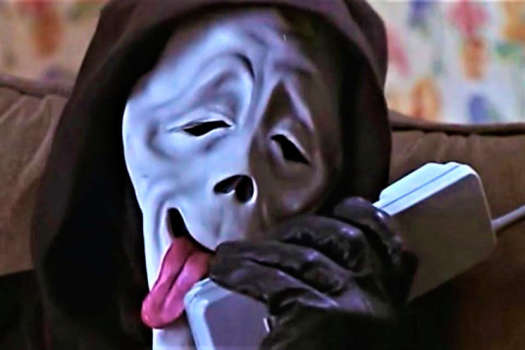Britains Hammer Studios is largely associated with horror, but produced all kinds of films, including these unassuming yet enjoyably ripping yarns. All but one are unpretentious enough to entertain while being anti-authoritarian in very surprising ways. Best of the bunch is The Pirates of Blood River, in which an adulterous Kerwin Mathews is cast out of a colony of Huguenots only to fall in with pirates led by Christopher Lee. The dilemma is how to oppose the misuse of Huguenot morality without succumbing to the wholesale brutality of Lees pirates, and despite one regrettably pompous speech the film is brutally suggestive and surprisingly gripping. Almost as good is The Devil-Ship Pirates, where Lee diverts his ship from the Spanish Armada in order to trick a British township into thinking their land has been conquered by Spain. Its another film that suggests nastiness without actually depicting it, as well as being clever enough to make you forget its implicit British flag-waving. One would categorise The Stranglers of Bombay with these two were it not for its political sins: set in colonial India, it pits the East India Trading Company against the murderous Thuggee sect while engaging in some unpleasant stereotyping of the locals. Still, its smart enough to know that the company has its hand in the sects rise and is laudable for pitting its hero Alan Cuthbertson against both sides. Alas, no such mitigating circumstances save The Terror of the Tongs, a frankly racist movie with a diligent Briton pitted against the Hong Kong criminals mostly played by whites in make-up (including Christopher Lee, in training for Fu Manchu). Nothing can save this movie from its arrogant presumptions: the yellow face whites are hilariously unconvincing, while the anti-authoritarianism is limited to corrupt English helping the Tongs. If you can laugh at the Chinese take-out joint decor, thats as good as youll get. Still, the other three films are more than satisfying and suggest that there are plenty of gems to be mined from Hammers "unofficial product. I look forward to more of these hitting the streets. Commentaries by Hammer personnel on all films, a feeble 30s pirate cartoon, a two-reel comedy called Hot Paprika and chapter one of the 1933 serial The Great Adventures of Captain Kidd round things out.
(Sony)Icons of Adventure

BY Travis Mackenzie HooverPublished May 28, 2008



